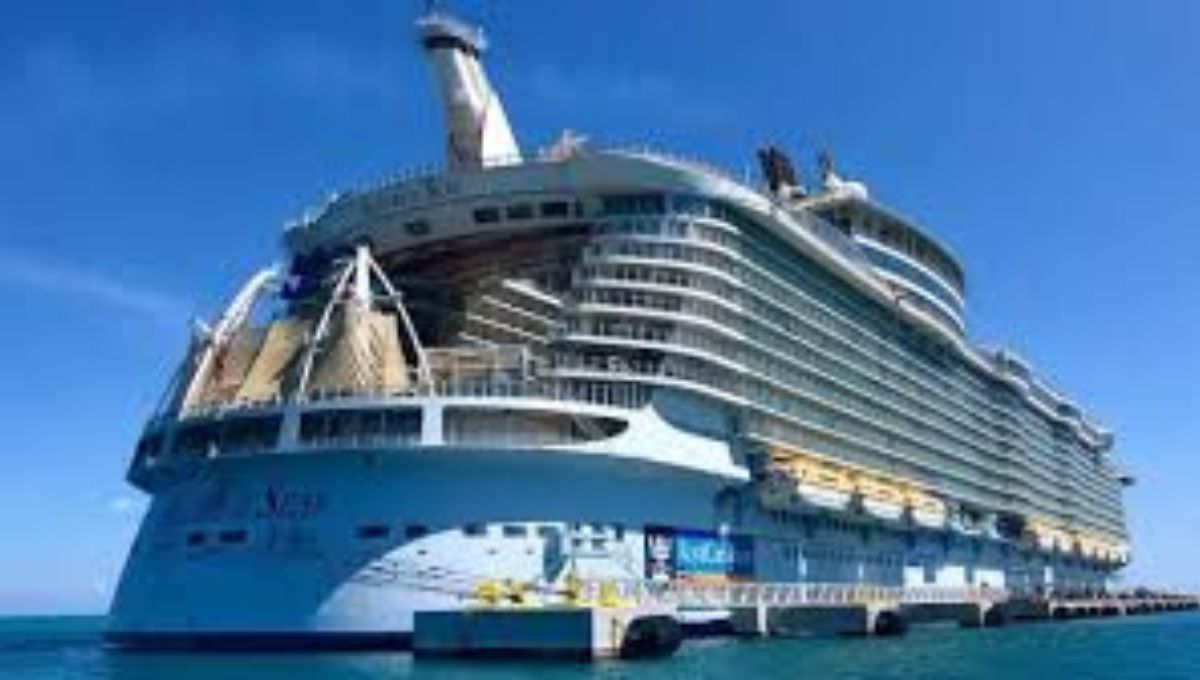The global hotels, resorts, and cruise lines market are on a trajectory of remarkable growth, poised to reach a staggering USD 3,087.27 billion by 2032 at an impressive CAGR of 17.5%. This significant surge comes after the market was valued at USD 618.35 billion in 2022, and the forecasted growth reflects the evolving landscape of the travel industry.
Diverse in nature, the hotels, resorts, and cruise lines sector caters to various segments of the travel industry. Hotels offer lodging services, resorts provide a comprehensive experience with additional amenities, and cruise lines redefine travel by combining accommodation, dining, and entertainment on floating vessels that traverse diverse destinations.
In response to modern travelers’ quest for unique experiences beyond standard amenities, establishments in this sector have been curating distinctive offerings. Culinary tours, adventure excursions, and cultural immersions are becoming staples in the industry’s efforts to cater to the growing demand for authentic and immersive encounters with local cultures and environments.
However, this industry is not just about luxury and leisure; it is undergoing a transformative shift towards sustainability. In an era of growing environmental consciousness, many establishments are adopting eco-conscious operations, from energy-efficient designs to waste reduction initiatives. Cruise lines, in particular, are investing in advanced technologies to reduce emissions and minimize their ecological footprint.
A noteworthy collaboration in this context is the partnership between Hotel Alliance (GHA) and Regent Seven Seas Cruises. In July 2023, these two luxury brands joined forces to extend the acclaimed loyalty program, GHA DISCOVERY, into the realm of cruise travel. This collaboration marks a significant milestone, uniting premier luxury brands within the travel industry.
Nevertheless, operating in a heavily regulated environment poses challenges for hotels, resorts, and cruise lines. Compliance with numerous local, national, and international standards requires meticulous attention, adding complexity to their operations.
Moreover, the travel industry is susceptible to economic fluctuations and geopolitical events, which can impact consumer spending and travel patterns. Economic downturns or unforeseen crises can significantly affect the market. The rise of online platforms offering vacation rentals and home-sharing options adds further competition to traditional establishments, necessitating differentiation through unique offerings and exceptional service.
Growth Drivers: Health and Wellness Programs
One of the significant growth drivers for the hotels, resorts, and cruise lines market is the increasing awareness of health and wellness programs. As health and wellness become integral to people’s lifestyles, there is a rising demand for facilities like spas, fitness centers, and wellness programs. Resorts, in particular, are capitalizing on this trend by offering specialized packages focused on rejuvenation and relaxation.
Health and wellness tourism have become robust sectors driven by a health-conscious global population seeking holistic well-being. This has led to a surge in demand for wellness-oriented travel experiences, with travelers prioritizing destinations and accommodations offering activities like yoga retreats, spa therapies, and fitness programs.
Advancements in medical technology and a growing preference for alternative and complementary therapies have further boosted the appeal of health and wellness tourism. Travelers are now seeking destinations renowned for their medical expertise, rejuvenating therapies, and holistic healing practices, resulting in the development of specialized medical tourism hubs worldwide.
Report Segmentation: Insights into Market Dynamics
The market is segmented based on type, sales channel, and region. In terms of type, hotels accounted for the largest market share in 2022, driven by the expanding global middle class, rising disposable incomes, and an increasing preference for experiential travel. The integration of technology, including online booking platforms and intelligent room features, has elevated the guest experience, contributing to heightened occupancy rates.
The resorts segment is anticipated to witness the highest growth during the forecast period, fueled by the escalating popularity of leisure and luxury travel. Resorts offer a diverse array of activities, convenience, and comfort, contributing to the segment’s expansion.
Regarding the distribution channel, the offline channel is expected to witness the highest growth during the forecast period. While online booking platforms dominate the industry, offline channels remain significant, serving a diverse clientele seeking personalized interactions and expert advice.
Regionally, North America dominated the global market in 2022, offering a thriving and diverse sector with options ranging from luxury resorts to world-class cruise experiences. The Asia-Pacific region is expected to be the fastest-growing, with a wealth of cultural and natural attractions attracting millions of visitors.
Key Players and Competitive Landscape
The market is fragmented, witnessing competition among several players. Major service providers in the market, including Accor SA, Carnival Corporation & plc, and Marriott International, Inc., are constantly upgrading their technologies to stay ahead of the competition. Recent developments, such as InterContinental Hotels & Resorts’ comprehensive worldwide brand transformation, showcase the industry’s commitment to redefining the luxury travel experience.

